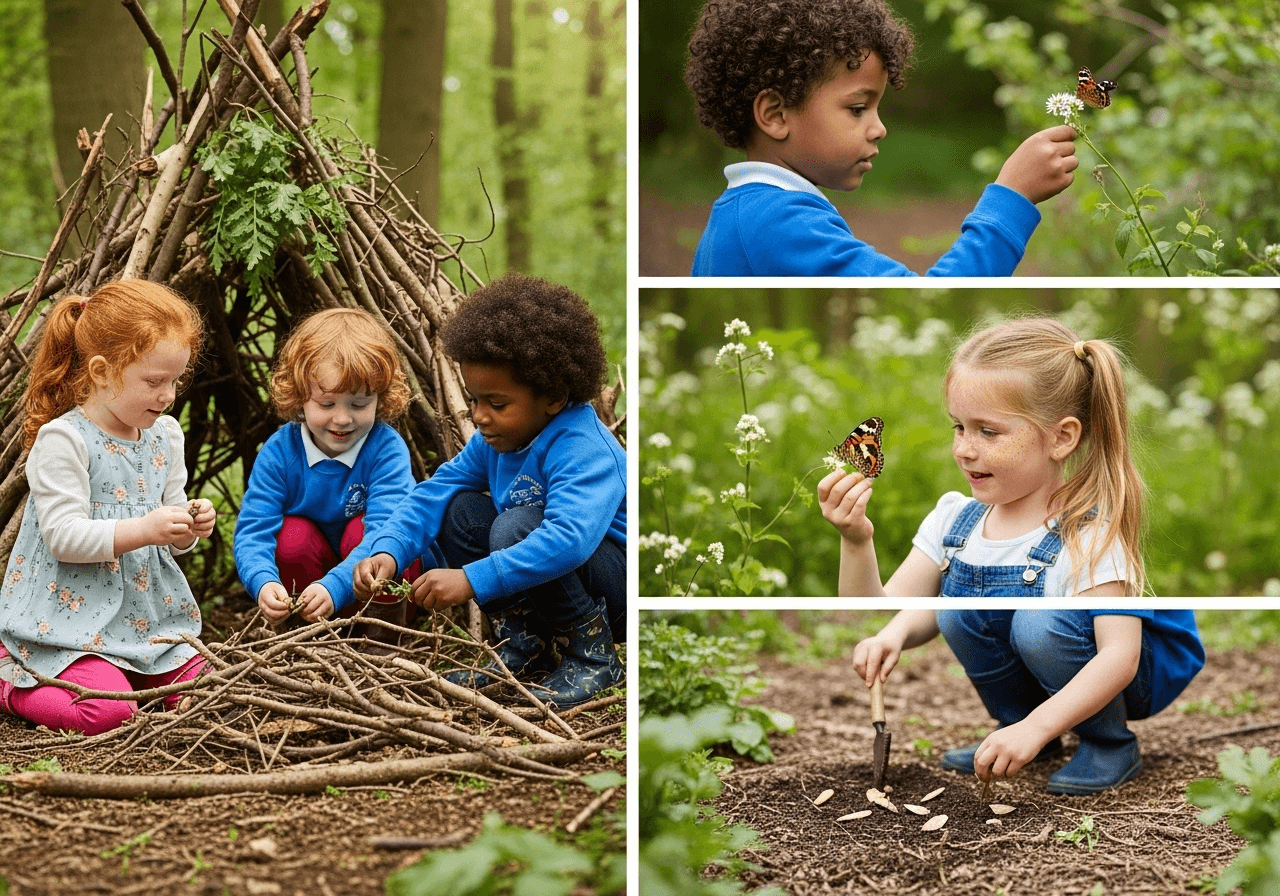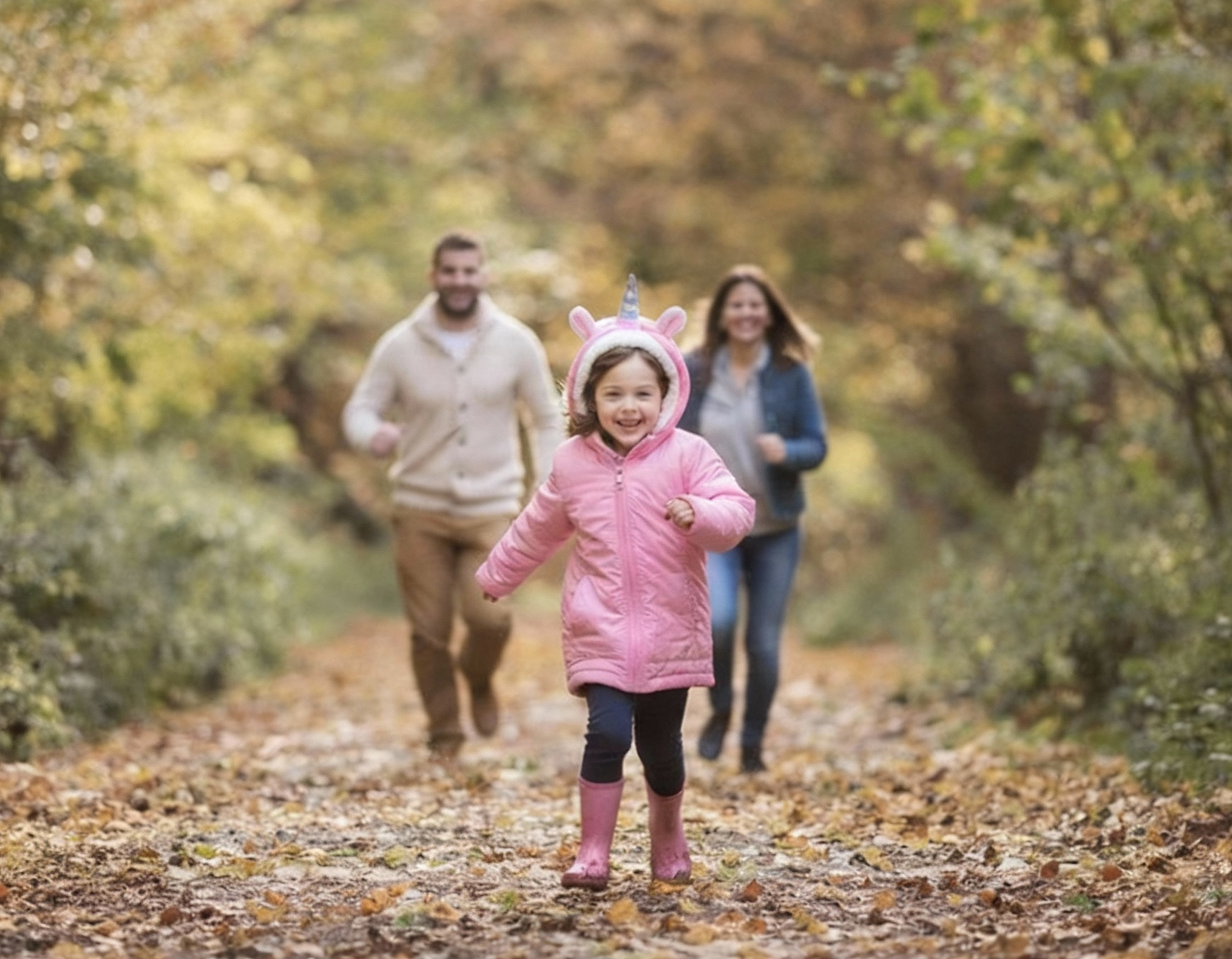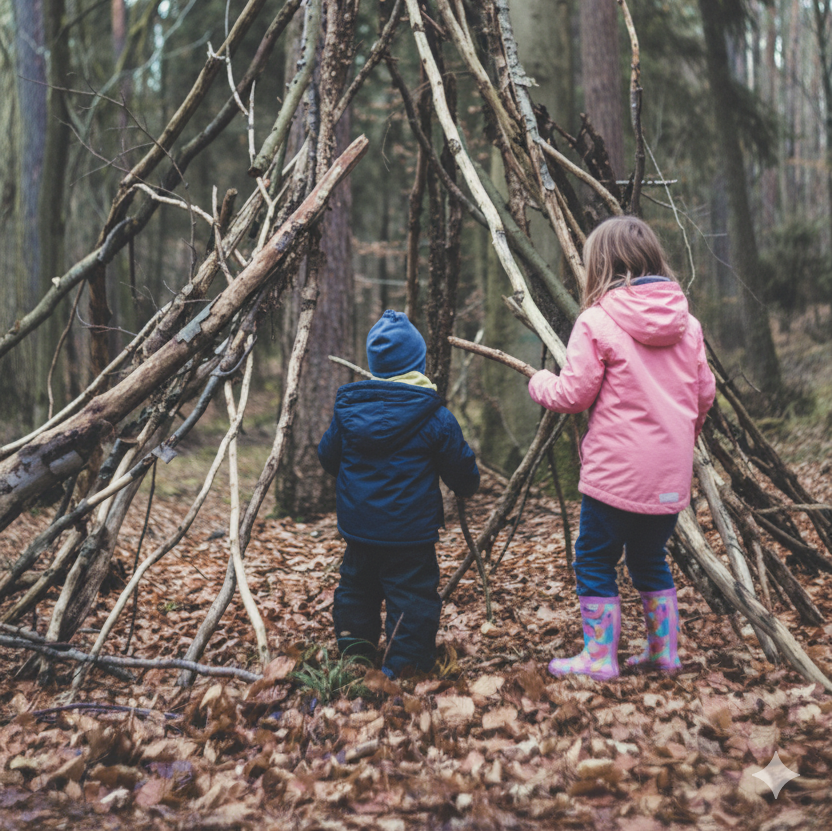· Outdoor Education · 7 min read
Exploring the Benefits of Forest School for Children
Discover the transformative benefits of Forest School, where children thrive in natural environments, enhancing their physical, emotional, and social development through hands-on learning experiences.

Understanding the Forest School Philosophy
Forest School is an educational approach grounded in child-centred learning that prioritises experiential engagement with the natural environment. At its core, the philosophy embraces the idea that learning should be a holistic, long-term process where children can lead their own discovery and development journey. Forest School principles are underpinned by six core pillars, which include holistic development, child-initiated learning, and the importance of natural and dynamically rich environments. This ethos reflects a belief in the transformative power of nature and its role in fostering resilience, confidence, and independence among learners.
A defining characteristic of Forest School is its emphasis on experiential learning, which involves hands-on activities that encourage exploration and curiosity. Children are encouraged to take calculated risks, make decisions, and solve problems in a real-world context. Such experiences help develop a wide array of skills, from critical thinking and teamwork to practical abilities like tool use and environmental care. The UK is home to many successful Forest School programmes, each embodying these principles to provide personalised learning experiences that respect individual pace and interests.
Forest School sessions are typically held regularly over an extended period, allowing participants to build strong relationships with their environment and peers. This approach not only enhances cognitive and emotional growth but also nurtures a lifelong appreciation and understanding of the natural world. For more insights into the benefits and philosophy of Forest School, you can visit Forest School Finder.
Physical Development Through Nature
Forest School offers a dynamic environment for enhancing children’s physical development, fostering skills like coordination, balance, and overall health. Outdoor activities in Forest School settings naturally promote these aspects as children engage in diverse physical tasks. Climbing trees, building dens, and navigating uneven terrain demand a range of motor skills that are crucial for coordination and muscle development. Moreover, these activities require children to use their bodies in ways traditional indoor settings do not typically offer, supporting the development of both fine and gross motor skills.
Physical health benefits are manifold, with outdoor play at Forest Schools encouraging active lifestyles. Children expend more energy as they explore the outdoors, which can contribute to maintaining a healthy weight and reducing the risk of childhood obesity. Forest School activities, by their very nature, increase cardiovascular health through continuous movement, enhancing overall fitness levels. The exposure to varied natural environments also supports sensory development, allowing children to adapt to different stimuli and challenges.
The Forest School approach aligns with calls from experts to improve outdoor play opportunities for children, given the significant reduction in playtime and space reported in England’s educational settings The Guardian. By integrating physical play within a natural context, Forest Schools not only address these concerns but provide a holistic framework for improving physical, emotional, and social well-being.
Emotional and Social Growth
Outdoor learning plays a pivotal role in nurturing children’s emotional intelligence, confidence, and social skills. In a Forest School setting, children are encouraged to engage with peers and communicate effectively. This naturally fosters teamwork and cultivates empathy, as children learn to understand and manage both their emotions and those of others.
Confidence is bolstered through hands-on learning experiences such as building shelters or solving navigational challenges. These tasks invite children to take calculated risks and inspire a sense of accomplishment when goals are achieved. This incrementally builds their self-esteem and resilience. Furthermore, social skills are honed as children participate in collaborative projects, requiring negotiation and collective problem-solving. Regular interactions in a supportive outdoor setting can aid children in developing these capabilities, making an impact on their overall mental health and well-being, which is increasingly important in preparing children for more sustainable and emotionally intelligent futures.
Such holistic growth is a testament to the transformative potential of Forest Schools and outdoor education. Parents and educators can expect to see children blossoming into more confident, socially adept, and emotionally intelligent individuals. For more on how Forest School methodologies benefit young learners, visit Forest School Finder.
Cognitive Benefits of Learning in Nature
Engaging with the natural environment has a multitude of cognitive benefits for children, enhancing creativity, problem-solving abilities, and even academic performance. Studies have shown that time spent in natural settings allows children to think more freely, develop their imaginations, and foster new ideas. This is partly because nature reduces stress and anxiety, which in turn improves focus and attention span.
In terms of problem-solving, the unpredictable and dynamic nature of outdoor environments encourages children to think critically and devise solutions on the spot. For instance, building a shelter using natural materials requires planning, adaptability, and teamwork. Such activities naturally integrate the fundamental elements of problem-solving — hypothesising, testing, and reflecting — which are essential skills in any academic setting.
Environmental Awareness and Responsibility
Forest School is a powerful approach to nurturing environmental awareness and responsibility in young learners. By immersing children in natural settings, Forest Schools instil a deep sense of connection and stewardship towards the environment. This connection is not merely about learning facts but developing a relationship with nature that incites care and responsibility. According to Forest School Finder, pupils are encouraged to explore, observe, and interact with their surroundings, naturally fostering respect and understanding of the delicate balance within ecosystems.
In these settings, children learn the principles of “leave no trace” and sustainable practices, gaining first-hand experience in how their actions impact the environment. As part of their learning, they might engage in activities such as building shelters using natural materials or identifying local flora and fauna, which teaches them resourcefulness and respect for living organisms. Importantly, this hands-on learning is underpinned by conversations about the need to protect and preserve natural resources, reinforcing the lessons in a real-world context.
A study highlighted by the BBC noted that experiences with animals and nature can have a calming effect on children and teach them valuable skills, such as empathy and patience, which are crucial for developing conscientious attitudes towards the environment BBC. As children grow, the environmental values cultivated in Forest School can influence lifelong attitudes and behaviours, promoting a generation more committed to sustainability and environmental care.
Supporting Statistics from the UK
While specific statistics on forest schools in the UK may be limited, broader research supports the benefits of outdoor learning. A report by Natural England found that 95% of schools implementing outdoor learning observed positive impacts on pupil motivation. Additionally, educators reported improved student behaviour and general well-being.
| Benefits | Percentage of Improvement |
|---|---|
| Emotional resilience | 90% |
| Social skills | 88% |
| Physical health | 85% |
| Academic focus | 80% |
Integrating Forest School into Education Systems
Incorporating Forest School principles into traditional educational settings can be a rewarding endeavour for both students and educators, providing holistic benefits such as increased engagement and improved well-being. Educators can start by allocating regular outdoor sessions where traditional subjects like maths and science are taught through practical, nature-based activities.
For parents seeking to weave Forest School ideals into daily routines, activities can range from simple nature walks that incorporate observational exercises to starting a small garden space for children to care for at home. Encouraging children to engage in unstructured play in natural settings can boost creativity and resilience.
The overarching goal is to foster a connection between young learners and the natural world, developing not just academic skills but personal growth and environmental stewardship. This dual approach of blending indoor activities with outdoor explorations aligns effectively with the Forest School ethos and supports a balanced educational experience.
FAQ
Q: How does Forest School differ from traditional schooling? A: Forest School emphasises child-led, experiential learning in natural settings, which enhances personal growth and resilience beyond the constraints of traditional classroom methods.
Q: What are the main physical benefits children gain from Forest School? A: Children improve coordination, balance, and overall fitness through engaging in activities like climbing and exploring, promoting a healthy lifestyle.
Q: How can I incorporate Forest School principles at home? A: Encourage outdoor play, start a garden, and use natural materials for crafts or experiments, allowing children to learn through exploration and discovery.
Q: What cognitive benefits does nature-based learning offer? A: Nature-based learning enhances creativity, problem-solving skills, and academic performance by allowing children to engage deeply with their surroundings and contexts.
Q: Why is environmental awareness crucial in Forest School? A: Forest School cultivates environmental stewardship, teaching children the importance of conservation and sustainability through direct interaction with the natural world.



